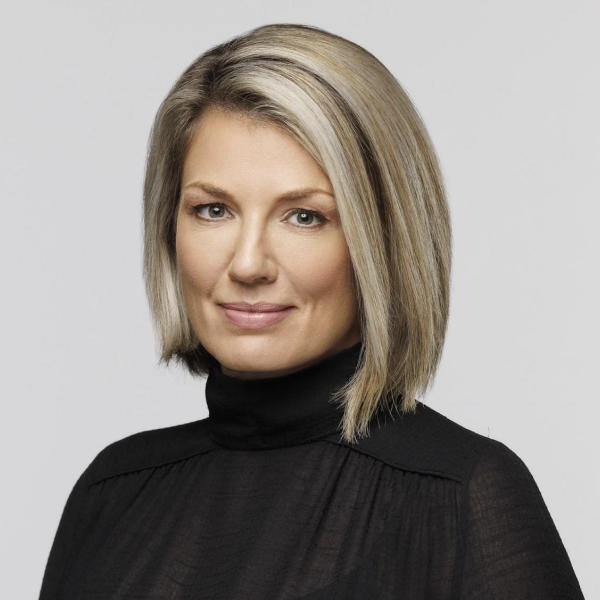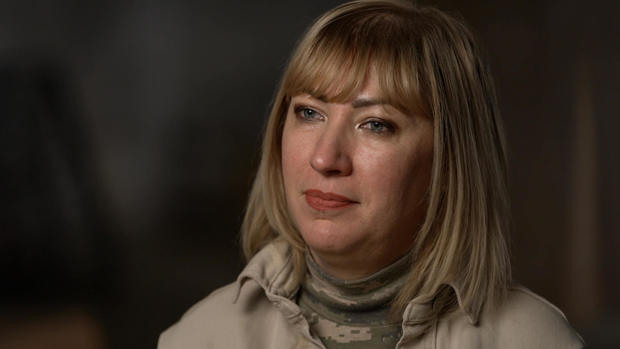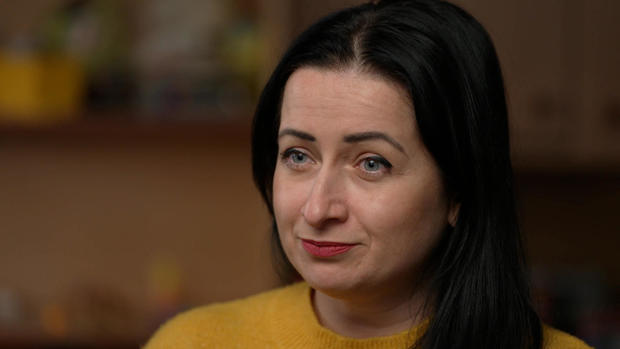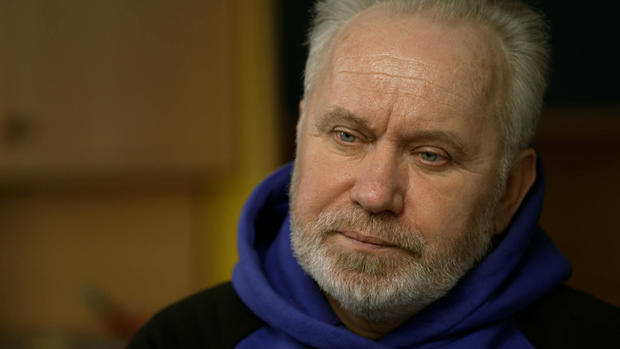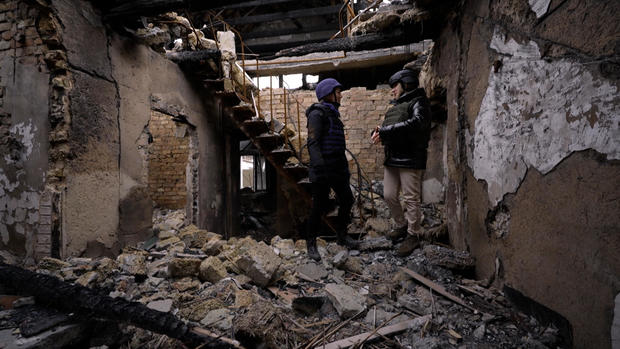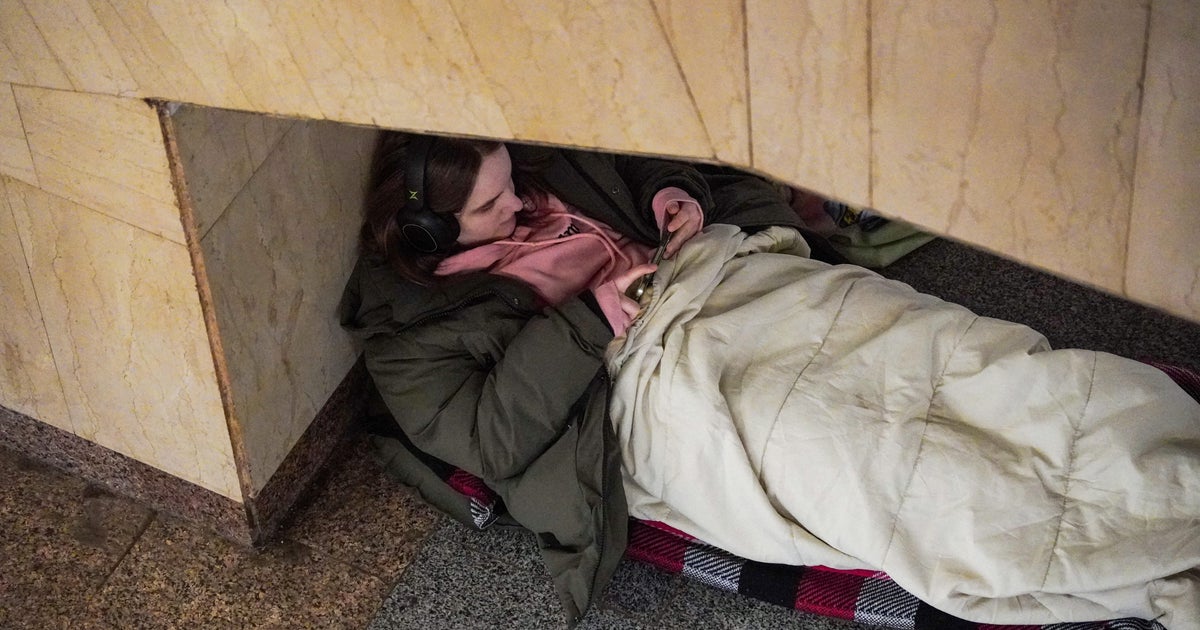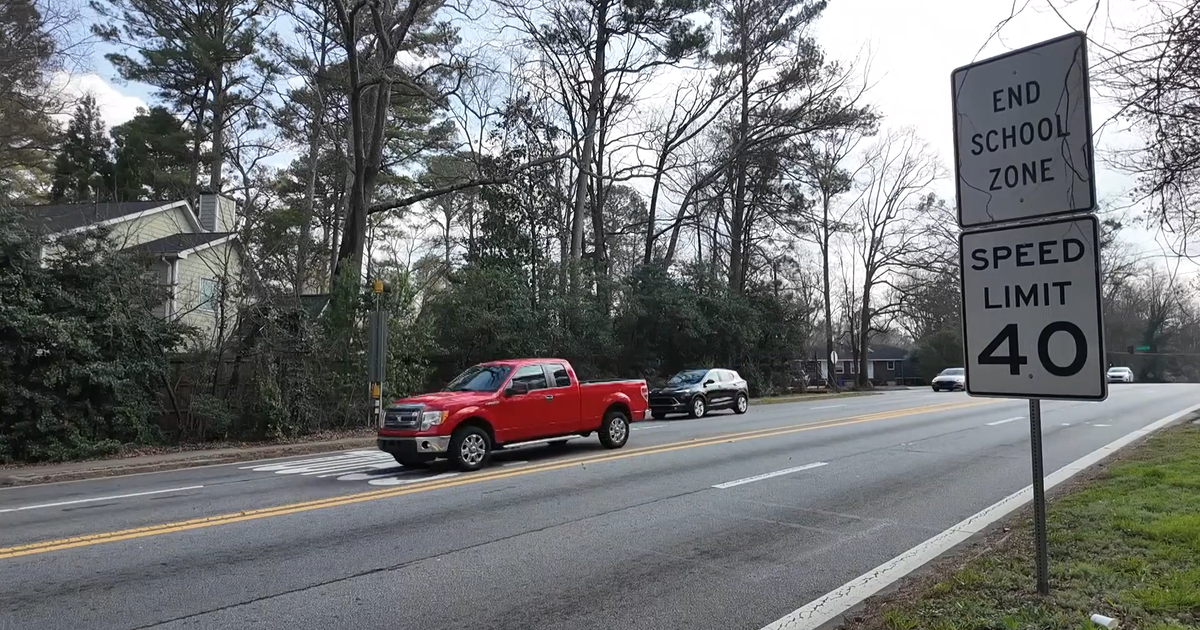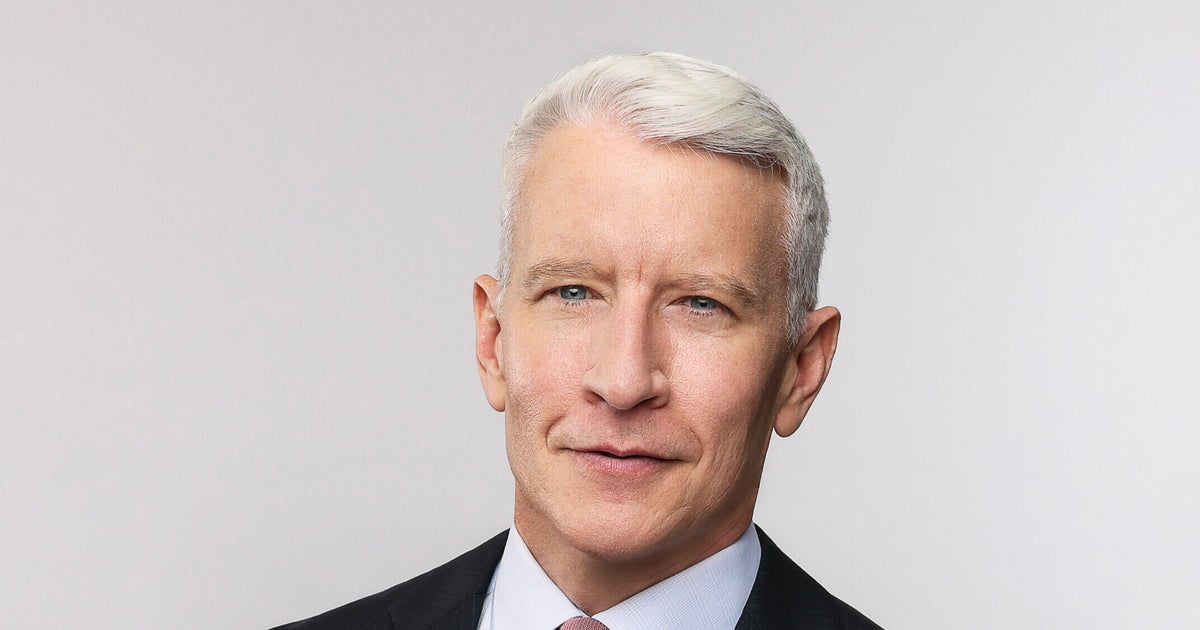Kherson, Ukraine, withstands constant Russian attacks after occupation ends
In the year since Russia invaded its neighbor, Ukraine, Vladimir Putin's army has succeeded in capturing just one regional capital - the city of Kherson. It was a key objective in the Kremlin's attempt to seize Ukraine's Black Sea coast. The eight-month occupation of Kherson ended in November, when Ukraine's army forced the Russians to retreat back across the Dnipro River. But the city's residents are now under fire almost every day from enemy artillery positioned less than a mile away. We visited Kherson this month and, from what we witnessed, Russia's goal appears to be the destruction of what it cannot control.
When we drove alongside the river, we didn't let the speedometer dip below 70 miles an hour. On one bank is the city, on the other - russian tanks, artillery and snipers. A fast-moving target is hard to hit.
Halyna Luhova: People in our city, they are the target. The enemy is crazy.
Halyna Luhova used to be a school teacher and a city council member.
Ukraine's president put Luhova in charge of rebuilding Kherson, effectively its mayor. We watched as she managed aid distribution, power outages and an avalanche of problems caused by Russian shelling.
Kherson has been shelled more than 2,000 times in the last three months.
Holly Williams: Is there a pattern to what the Russians are hitting with the shelling, or is it random?
Halyna Luhova: During a long period of occupation for eight months they know all the information as for our infrastructure. So they know everything.
Holly Williams: Because they occupied the city, they know where the schools are, they know where the humanitarian aid points are.
Halyna Luhova: Yes, they know.
Holly Williams: Would you prefer it if all civilians left the city?
Halyna Luhova: It will be better for them I think. You know, our people go to bed every day, and they don't know exactly if will be awake in the morning. It's really terrible.
Before the war, 300,000 people lived in Kherson. Now, about 60,000 remain. more than 80 people have been killed by the shelling. This fire station and 19 medical facilities have been hit. Nothing, it seems, is sacred. There's a bomb crater right outside the Church of the Exaltation of the Cross.
Inside, it was below freezing. Eighty-four-year-old Valentina Syryk told us she was asking god to give the Russians common sense.
Holly Williams: It is very dangerous in Kherson now. Why are you still here?
"If you were this old, where would you go?" She asked us.
It's the elderly and those without the means to leave who have stayed.
We pulled up to this apartment building just hours after it took a direct hit. Iryna Barandych was cleaning up the damage to her sister's apartment up on the fourth floor.
Nobody was hurt. Elena lives in one of only three apartments still occupied.
Holly Williams: Why would they hit your building?
"Because they simply want to annihilate Ukrainians," she said, "what other reason could there be?"
They've grown used to cleaning up the debris in Kherson.
But so much more has been shattered.
Katya Fateeva: And it was the war. It is almost-- no people here.
Holly Williams: In English we would call it a ghost town.
Katya Fateeva has refused to leave Kherson despite offers of a place to stay from friends outside Ukraine.
Her son, Max, who's 9 years old, started piano lessons last summer. Fateeva told us it's been a good distraction because it's unsafe to go outside and play.
Katya Fateeva: We still believe that everything will be good soon and-- our victory will come and our life will return to our ordinary way.
Holly Williams: Why are you so certain that things will go back to normal?
Katya Fateeva: We are on our land and we believe we are Ukrainians. And we want to live in Ukraine. And nothing-- will (DETONATION) change this, you see?
Holly Williams: So--
Katya Fateeva: Nothing.
Holly Williams: --you heard that, right?
Katya Fateeva: Yes.
Holly Williams: It's as if nothing happened. You don't—shake, you don't even turn your head.
Katya Fateeva: No.
Holly Williams: You've got used to it?
Katya Fateeva: Yes. We have got used to this, all this. Because every bomb, every attack will-- take us to our victory.
Kherson's defiance was obvious as the Kremlin's troops rolled into town last March. Thousands demonstrated.
Within days, Russian soldiers opened fire and began arresting protestors. Residents were ordered to use Russian currency and schools were told to adopt a Russian curriculum. Fateeva would have none of it.
Katya Fateeva: We continued studying in our Ukrainian school by Zoom online with our teachers, with our programs.
Holly Williams: That was illegal.
Katya Fateeva: Yes of course it was illegal from their side…but they tried to do take our children there.
Holly Williams: The Russians wanted to control what your children were thinking, what they learned--
Katya Fateeva: Yes. Yes, you're absolutely right. They really want to control our people's mind, what to do, what not to do and so on.
We realized where Fateeva's courage came from when we met her father. Vladimir Sagayak manages a foster home just outside the city. After hearing reports that Ukrainian children were being deported to Russia. Sagayak decided to hide 46 kids in his care.
He placed some of the children with their distant relatives. The rest were sent off with foster home staff. Fake documents helped them get past Russian checkpoints.
Holly Williams: What are these stories you came up with to explain new children appearing in families?
Vladimir Sagayak (Translated): We had a young kindergarten teacher who took in five kids from five to sixteen years of age. And we worked out a story for her that her sister was in her last month of pregnancy and she was looking after her sister's kids. With the help of Photoshop, we created a doctor's note. That's how they got through.
More than 6,000 Ukrainian children have been taken into Russian custody since the war began, according to research by Yale University. There is security camera video from the day last June when Russian soldiers came to Vladimir Sagayak's foster home. He told them he'd sent the children back to their families.
Holly Williams: If the Russians had found out exactly what you did, that you hid 46 children, what do you think they might have done to you?
Vladimir Sagayak (Translated): I think I would not be talking to you today.
Hundreds of others who resisted were brought to this place, known as "the pit."
Holly Williams: And then what's this to the right here?
Andriy Andryushchenko told us he was tortured here with electric shocks to his head and genitals.
Holly Williams: Tied you to the chair…
People he knew were being beaten in adjoining cells.
Holly Williams: You could hear the screams of your friends-
Andriy Andryushchenko: Every time.
Holly Williams: While they were being tortured.
Andriy Andryushchenko: Ev-- every time, yes.
His crime was painting pro-Ukrainian graffiti.
But by November, the occupiers lost their grip on Kherson. Squeezed between the advancing Ukrainian army and the river, they withdrew.
The sounds of celebration were soon replaced by this, the new tyranny of Russian artillery.
Holly Williams: The whole thing is underground
Halyna Luhova: [affirms]
It's too risky for Mayor Halyna Luhova and her team to work in the town hall. So the administration of a city the size of St. Louis has been crammed into this basement.
Halyna Luhova: There are a lot problems we have and you see the people who solve them.
Holly Williams: And I'm just noticing, its nearly all women.
Halyna Luhova: There are a lot of women here. Also, yes, it's right.
They've had to improvise. To keep the buses running, parts have been salvaged from those hit by shells. And the heat at this hospital is off most days so that wisps of steam don't catch the attention of Russian artillery spotters.
Holly Williams: I've heard that you like to describe Kherson as invincible – "Neslame"
Halyna Luhova: "Neslame"
Holly Williams: Why did you choose that word?
Halyna Luhova: We are unbreakable. All the people of Ukraine are unbreakable.
But Luhova believes Russian collaborators still lurk in the city.
Halyna Luhova: They phone them to the left bank of the river and say where I am, where our team is, what we are doing. They say everything.
Holly Williams: Feeding information to the Russians.
Halyna Luhova: Yes, yes.
Holly Williams: And telling them what to hit?
Halyna Luhova: Yes, yes. It's true.
Holly Williams: And what should happen to those collaborators now?
Halyna Luhova: We have-- to kill them. I think that they have no right to live.
Holly Williams: No right to live.
Halyna Luhova: No right to live.
It was the bluntness of a person who has been targeted by Russian artillery seven times.
Halyna Luhova: The enemy is-- in front to us on the left bank of the river. And so this place is very dangerous.
Holly Williams: They're a few hundred yards away--
Halyna Luhova: This is my house.
Holly Williams: This was your house?
Halyna Luhova: Yes.
Luhova left Kherson for six months during the occupation because she feared she'd be killed. While she was gone her house was burned down. She blames the collaborators.
Halyna Luhova: All I had during my life. This is my house. We together build this house with the family. With my husband and with my two sons. It's tragedy.
Holly Williams: A tragedy.
Halyna Luhova: For me and for people.
Halyna Luhova told us she tries not to sleep in the same place two nights in a row and travels in an armored van.
Halyna Luhova: It's dangerous but I have to do my work. I have to help people. I have to be with them with humanitarian aids. It's my duty, so I do it.
This city will remain under fire, so long as the Russians are on the opposite side of the river.
Only if Ukraine's military can push them back will Katya Fateeva's son enjoy a walk outside with his grandfather.
Holly Williams: Do you think Kherson will ever go back to what it was like before?
Katya Fateeva: I am sure it will become much, much better because people have changed. Our minds have changed. Maybe sometimes we didn't understand, really, that we are Ukrainians. And now with the help of this war, we understand who we are, what we want, and-- that most important, we understand what we don't want.
Produced by Erin Lyall and Guy Campanile. Associate producer, Lucy Hatcher. Field producer, Oleksandr Churkin. Broadcast associate, Eliza Costas. Edited by Craig Crawford.
